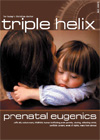Lord Joffe's Assisted Dying for the Terminally Ill Bill, [1] which sought to legalise physician-assisted suicide in England and Wales, was defeated at second reading in the House of Lords on Friday 12 May by a massive majority of 148-100 after an eight hour debate in which over 90 peers spoke.[2] As there were only two months left in the parliamentary session the 'wrecking' amendment to delay it by six months, proposed by Lord Carlile, effectively killed the bill.
We have now seen three incarnations of this bill in as many years. The first ran out of parliamentary time, the second led to a Select Committee and Report,[3] and this, the third, was the first to come to a vote. By rejecting it at a second reading, rather than allowing it to proceed to committee stage, the British Upper House have rejected the underlying principle of the bill (assisted dying) and signalled that there is no need to debate its fine detail. This was an overwhelming defeat for the proeuthanasia movement, and in particular for Lord Joffe and Deborah Annetts of Dignity in Dying (formerly the Voluntary Euthanasia Society) who collectively drafted the legislation.
The Joffe bill's defeat was the result of a sustained campaign by a broad coalition of organisations and individuals. It was hugely significant that the Royal College of Physicians (RCP), after taking a neutral position at the time of giving evidence to the Select Committee, changed its position to oppose the bill after taking a survey of members'opinions.[4] The move made front-page news in the Times on 10 May after significant coverage of the wider issues in broadsheet and tabloid newspapers over the previous four days.[5] A media storm followed leading up to the Lords'debate with opponents, including several CMF members, being interviewed on all the major television and radio stations, and on regional media. At the same time a large number of peers delayed their departure from Westminster to listen to the debate and register their votes.
These events followed a campaign organised by Care Not Killing, an alliance of over 30 human rights groups, professional groups, hospices and faith groups including CMF, which resulted in peers receiving over 150 individual letters each,[6] a petition of 100,000 signatures delivered to 10 Downing Street,[7] and the delivery to peers of leaflets, DVDs, position papers and a 25,000 word critique of the bill written by Professor John Keown, a world authority on euthanasia legislation.[8] Disabled groups, doctors and patients, with good stories to tell about effective palliative care, were widely featured on the media and the battle was won with arguments that highlighted the dangers posed by the legislation for vulnerable people, and the fact that requests for assisted dying are virtually unheard of when good palliative care is made readily accessible. Throughout the proceedings thousands of Christians faithfully prayed.
The RCP has now joined the RCN, RCGP, RCPsych and APM (Association of Palliative Medicine) in opposing assisted dying, leaving the British Medical Association as the last bastion of medical neutrality on the issue, isolated not only form the Royal Colleges, but also from the World Medical Association itself. The BMA holds its annual representative meeting on 26-29 June (after Triple Helix goes to press). On the agenda are 24 motions on assisted dying, of which only one supports a neutral position.[9]
Lord Joffe's stated intention to bring the bill back yet again to the House of Lords next session was greeted by howls of derision in the House, and it seems unlikely that he will attempt to do this. However there may be an attempt to introduce it into the House of Commons. As it is a private member's bill rather than a government bill, this could only happen if a sympathetic MP were to win a ballot in November; but with 650 MPs vying for position, and only about five private members'bills being debated per session, this may prove more difficult than it sounds. However it is sobering that the Abortion Act became law after being introduced as a private members bill that the government did not oppose, and which uninformed public opinion supported.
In the meantime there is much to give thanks for, and although a significant battle has largely been won in the House of Lords and in the medical profession, the war is far from over. There is still much work still to be done in changing the opinions of the public and of MPs, and Christian doctors have a pivotal role to play in the process through educating the churches, the profession and society in general about the dangers of assisted dying legislation, and through promoting wider accessibility and better public funding for palliative care.
































